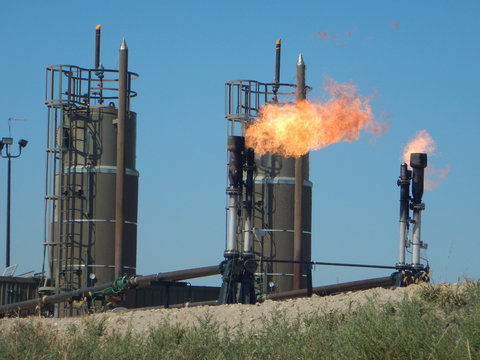Global carbon emissions
Main content start

We analyze the global budgets of carbon dioxide and methane. These studies include the balance of carbon coming from deforestation and land use change compared with fossil fuel emissions. We also study ways to encourage low carbon and low water technologies through carbon pricing and other levers. Lab member Rob Jackson directed the DOE National Institute for Climate Change Research for the southeastern U.S., co-chaired the U.S. Carbon Cycle Science Plan (2011), and is currently chair of the Global Carbon Project (www.globalcarbonproject.org).
People
- Michelle and Kevin Douglas Provostial Professor and Senior Fellow at the Woods Institute for the Environment and at the Precourt Institute for Energy
- Associate Senior Lecturer, Lund University
- Senior Lecturer, Stockholm University
Publications
- Biophysical and economic limits to negative CO2 emissions. (2016). Nature Climate Change, 6. https://doi.org/doi:10.1038/nclimate2870
- Reaching Peak Emissions. (2016). Nature Climate Change, 6. https://doi.org/doi:10.1038/nclimate2892
- Methane emissions from natural gas infrastructure and use in the urban region of Boston, Massachusetts. (2015). Proceedings of the National Academy of Sciences USA, 112. https://doi.org/doi:10.1073/pnas.1416261112
- Natural gas pipeline replacement programs reduce methane leaks and improve consumer safety. (2015). Environmental Science and Technology Letters, 2. https://doi.org/doi:10.1021/acs.estlett.5b00213
- Two or three degrees: CO2 emissions and global temperature impacts. (2015). The Bridge, 45.
- Air impacts of increased natural gas acquisition, processing, and use: a critical review. (2014). Environmental Science & Technology, 48. https://doi.org/doi:10.1021/es4053472
- Betting on negative emissions. (2014). Nature Climate Change, 4. https://doi.org/doi:10.1038/nclimate2392
- China’s synthetic natural gas revolution. (2013). Nature Climate Change, 3. https://doi.org/doi:10.1038/nclimate1988
- China’s coal price disturbances: observations, explanations, and potential implications for global energy economies. (2012). Energy Policy, 51. https://doi.org/doi:10.1016/j.enpol.2012.09.010
- China’s growing methanol economy and its implications for energy and the environment. (2012). Energy Policy, 41. https://doi.org/doi:10.1016/j.enpol.2011.11.037
- Ecosystem impacts of geoengineering: a review for developing a science plan. (2012). Ambio, 41. https://doi.org/doi:10.1007/s13280-012-0258-5
- The carbon balance of South America: a review of the status, decadal trends and main determinants. (2012). Biogeosciences, 9. https://doi.org/doi:10.5194/bg-9-5407-2012
- The potential of waste-to-energy in reducing greenhouse gas emissions. (2012). Carbon Management, 3. https://doi.org/doi:10.4155/cmt.12.11
- Opportunities and constraints for forest climate mitigation. (2010). BioScience, 60. https://doi.org/dx.doi.org/10.1525/bio.2010.60.9.7
- Pursuing geoengineering for atmospheric restoration. (2010). Issues in Science and Technology, 26.



